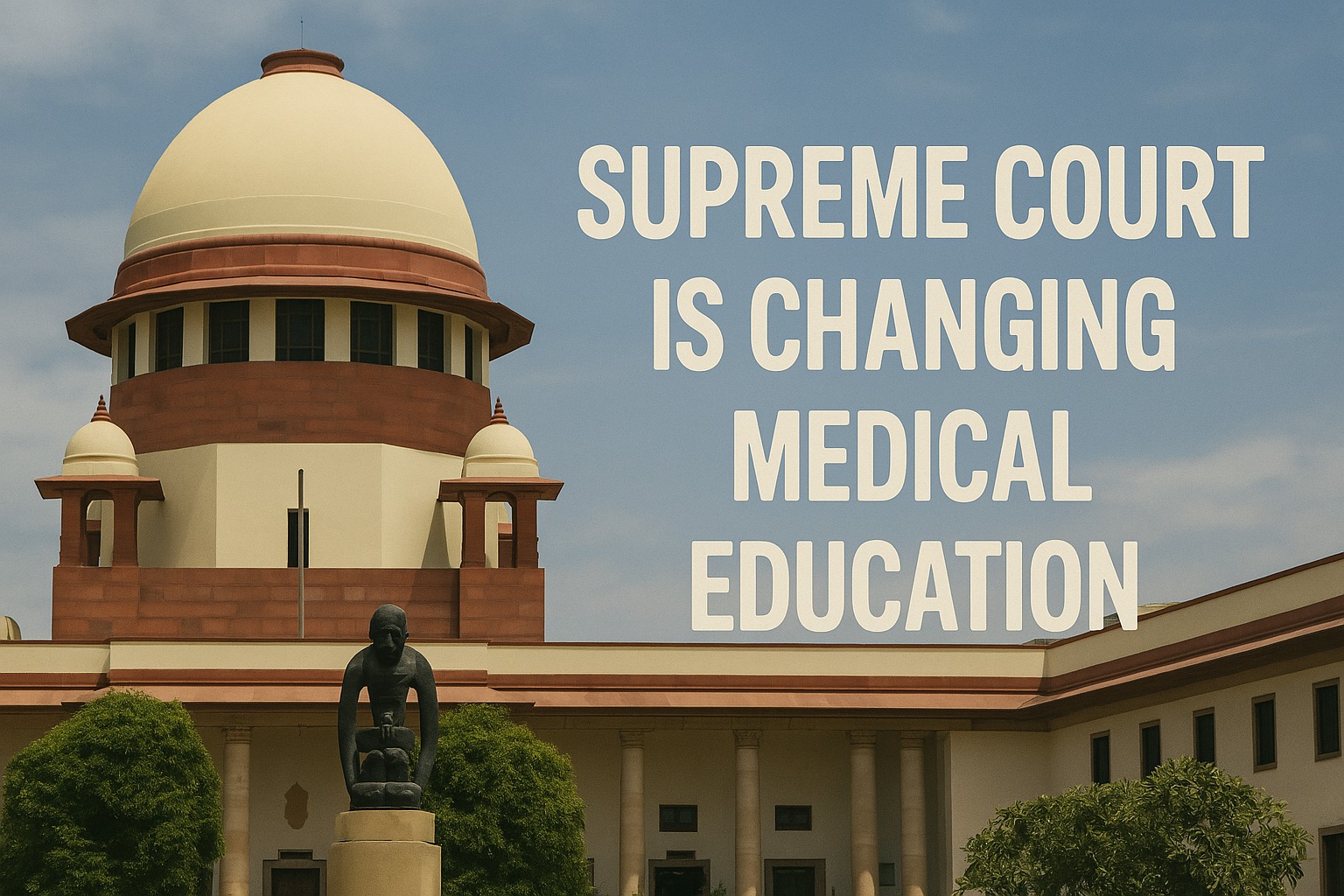From Exclusion to Empowerment: How the Supreme Court is Changing Medical Education
The NMC's revision of disability guidelines marks a progressive step towards inclusivity in medical education.

In a significant move towards inclusivity, the National Medical Commission (NMC) is revising its guidelines for admitting students with disabilities into MBBS programs. This initiative follows directives from the Supreme Court, emphasizing a shift from assessing disabilities to evaluating the functional abilities of candidates. The goal is to determine what individuals can do, rather than focusing on their limitations.
The Supreme Court of India has been instrumental in advocating for a more inclusive approach in medical admissions. In a landmark judgment, the Court criticized the NMC's previous requirement that candidates must have "both hands intact" to qualify for medical education. The Court deemed this criterion as "reeking of ableism," highlighting that it contradicts the principles of reasonable accommodation and inclusivity enshrined in the Rights of Persons with Disabilities Act, 2016, and Article 41 of the Constitution. The Court emphasized that functional assessment of a candidate's abilities should take precedence over rigid physical eligibility criteria.
In response to the Supreme Court's directives, the NMC is transitioning from Disability Assessment Boards to Ability Assessment Boards. This change reflects a paradigm shift towards evaluating the competencies essential for safe medical practice, focusing on candidates' functional abilities rather than the percentage of their disabilities. The emphasis is on identifying non-negotiable competencies required in the medical field and assessing whether candidates can perform these tasks effectively.
To spearhead this initiative, the NMC has constituted a seven-member committee tasked with reviewing and updating the existing disability guidelines. The committee is chaired by Dr. Achal Gulati, Former Head of ENT at Maulana Azad Medical College. Other notable members include Dr. Venkat Subramanian from NIMHANS and Dr. Rajesh Sagar from AIIMS New Delhi. The committee's primary objective is to define essential and non-negotiable medical competencies to ensure safe medical practice.
The previous guidelines faced criticism for being overly restrictive and not accommodating the diverse capabilities of individuals with disabilities. The Supreme Court highlighted that such guidelines were antithetical to the principles of the RPwD Act and the Constitution. By focusing on functional assessments, the new approach aims to provide equitable opportunities for candidates with disabilities, ensuring that assessments are based on abilities rather than physical attributes.
This shift towards functional assessment has significant implications for medical education in India. It promotes a more inclusive environment, allowing individuals with disabilities to pursue medical careers based on their competencies. Medical institutions will need to adapt their admission processes and curricula to accommodate this inclusive approach, ensuring that all candidates are evaluated fairly and provided with the necessary support to succeed.
The NMC's revision of disability guidelines marks a progressive step towards inclusivity in medical education. By focusing on functional abilities and essential competencies, the new approach aligns with the principles of equality and reasonable accommodation. This initiative not only complies with the Supreme Court's directives but also leads the way for a more diverse and capable medical workforce in India.
 Sunny Parayan
Sunny Parayan
#AccessibleEducation #SupremeCourtVerdict #FutureDoctors #RightToEducation #NMCReforms #healthvoice
